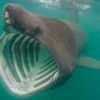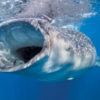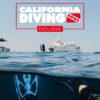Hi. My name is Dana. I am a lobstaholic. I realize now that I have been one since October 1987. The pursuit and capture of lobsters has become an obsession and perhaps a psychological dependency. Friends tried to tell me that this might happen, but I would not listen. I thought it could not happen to me.
It all began innocently enough. I was a new diver in 1987, eager to learn all the aspects of diving, well on my way to becoming a Divemaster. Then someone told me about a lobster hunting trip to Southern California. It sounded so exciting, so manly—how could I refuse? I met a group of new and interesting people. I caught my first lobster easily. It weighed 10 pounds. When I surfaced and showed it to the cheering crowd. Okay, there was no cheering crowd, but many people admired it and my lobster catching prowess (mostly luck at that point). I did not know it then, but that was the beginning of my long slide into lobster dependency. How do I know? Well, it is difficult now for me to walk by a tank of lobsters in the supermarket without reaching in and grabbing the biggest one.
To what lengths have I gone to capture them?
I have violated many PADI rules, not to mention common sense. Always dive with a buddy, PADI says. Most of my lobster dives have been solo, including night dives. It just sort of happened that way—buddies separated in hot pursuit of bugs. Or, I did not want to wait for the buddy to get ready. After a while I began to prefer it that way (bug fever insidiously causing me to violate the PADI rules). Diving by myself, I am completely responsible for my own actions and I do not have the distraction (compulsive bug focusing) of keeping an eye on my buddy.
It also means I do not have someone telling me I should not do foolish things like crawling into holes after bugs. My two 13-bug dives involved going into larger caves that were literally crawling with bugs, caves large enough to work with my tanks on. In the second one there were no problems. In the first, after I was 40 feet or so inside, my capturing of bugs had so stirred up the mud so that I had no idea which way was out. I followed the wall and went the right way on the first try.
The first time I took my BC and tank off underwater was because I got stuck in a tight hole and had to take it off to get out. The second time, I entered a flat cave about two feet high dragging the tank beside me. Some 15 feet inside I cornered a vicious pack of lobsters. I caught one and the others bolted, reducing visibility to zero. I dropped my light and caught another as it bounced off me. Now what do I do, with a lobster in each hand, no light, no tank, unable to see the exit? I tucked the bugs inside my farmer john top, felt for the light, and waited for the murk to clear. If I was going to panic, that would have been an opportune time. I did not panic.
There have been many other tank removal incidents, nearly all intentional. In 1999 my twin tanks came off unintentionally, ripped from my back in strong surge in shallow water—that is the one tank removal I do not want to repeat.
Nowhere in the PADI rulebook does it say “always surface with 500 psi of air in your tank except while lobster hunting.” I have run out of air well below the surface three times—one of them intentionally while catching a lobster. I have done it many other times as I came to the surface. Two years ago I had a large bug (9 pounds; won the pool) by the horns in one hand while digging him out of a rock pile with the other. I told myself that I was going to catch this bug, or run out of air—whatever happens first. I caught him and surfaced with less than 100 psi. I have surfaced more than once with an empty tank only to see the boat on the other side of a very dense patch of kelp. A 200 psi reserve would have gotten me to the boat under the kelp instead of through it. Bug obsession strikes again; catch the bug—to hell with rules, comfort and common sense.
What about the risk of decompression sickness?
A real manly lobster diver stud does not skip any dives, because he knows that the one he skips will be the one where everyone else catches lots of bugs; otherwise known as lobstaholic greed. He is also sitting at the rail fully ready to go before the boat even stops. Sound familiar?
In the beginning, I was intentionally self-limiting, in that I used a single tank and consumed a lot of air. It was difficult to exceed the limits unless I did deep dives. I once did two three-day trips back to back—something like 27 dives in 6 days—did ’em all, didn’t skip one. My computer never went into decompression, although it was frequently close. Later, I switched to twin tanks. Now I had to be more careful, more aware of depths, times, surface intervals. I still do all of the dives; I just stay shallower longer.
I confess to having my computer go into decompression once. It was the last dive of the third day. I was headed back toward the boat, low on air and bottom time. I spotted one more nice bug. Surely I can quickly catch this one and still be OK. Wrong. I tried, but he escaped. When I looked at my computer it was flashing—something like “you really screwed up this time, bonehead.” Heading toward the boat, I blundered into the anchor line and hung there at 10 feet until I ran out of air. One more minute, and I would have completed the decompression stop. I was still okay.
What has all this cost me?
I have conservatively calculated that I have made about 20 3-day trips to the Channel Islands from Reno specifically to chase lobsters, or about 250 dives. At a cost of at least $500 per trip, that is at least $10,000. On those 20 trips say I averaged 15 lobsters per trip. That makes at least 300 dead lobsters—at $33 each. In economic terms, maybe I really should catch my lobsters in the supermarket tank.
Since I did not have a wife during this time period, I could not lose her to lobstaholism, as some others have. There has been a definite gain of friends. The strong friendships that have come from this obsession will last a lifetime and are worth many times the money spent. I joke about the cheers of the crowd; that too is a lesser but important part of all this. I have gained a certain amount of respect from my peers, because I have gotten fairly good at it. It is a nice feeling, being considered one of the “experts.” Becoming good at lobster hunting is at least partly due to persistence. I believe that persistence is a very important part of any achievement. I learned this by doing it; I was largely my own instructor (I did learn from other divers, too).
On the second half of a back-to-back six-day trip, in the middle of the second (fifth for me) day, a “new guy” came up to me to ask for some advice. I was sitting in my accustomed position at the rail, compulsively ready to go before the boat stopped. He and his buddies had been sitting on the upper deck taking it easy, skipping some dives. My response was, “First, you are not going to catch any lobsters sitting on the boat.” I did not mean to be rude, just honest. I invited him to come with me and learn. He did not accept the offer; he apparently did not want to invest the required time and effort.
Do I regret becoming a lobstaholic?
Well, in some respects, yes. After a lobster trip my fingertips are shredded and sore, and I have to dig broken urchin spines out of my skin. It has cost me quite a bit of money that I could have invested in wine, women and song. But overall, it has been a great adventure, meeting interesting people, and having a few tense moments along the way. But those are part of the deal. Skipping the tense moments would have made it much less of an adventure.
Besides, I can quit any time I want. I am just not ready-yet.










